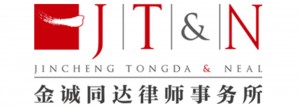In contemporary business, the disadvantage of running physical stores without taking account of the internet is very obvious, and virtual online commodity trading unsupported by physical presence can hardly gain a foothold. For this reason, there has been a trend towards integration between physical stores and the internet. Internet companies have begun to develop physical stores, and physical businesses are leveraging the power of internet platforms.

Partner
Jincheng Tongda & Neal
There are roughly two modes of internet sales: (1) selling one’s own products or providing one’s own services via the internet; (2) providing business services for others by setting up internet platforms. There are some internet platforms that provide business services for both oneself and others. This article explores the main points of concern regarding intellectual property involved in sales conducted by foreign-invested enterprises in China through the internet.
Internet content provider (ICP) licensing and recordal. By setting up an internet product sales channel (such as a website), one inevitably becomes an internet content provider. Under the existing law, selling one’s own products or providing one’s own services through the internet is regarded as an extension of traditional sales and only requires ICP recordal; foreign-invested manufacturing enterprises or commercial enterprises approved and registered in accordance with the law may directly engage in online sales. If one sets up an internet platform to provide services for third-party transactions (including providing services for both oneself and third parties), one shall apply for an ICP licence. In practice, it’s relatively easy to obtain ICP recordal. But obtaining an ICP licence is quite difficult – even if one meets the basic requirements, one may not be able to obtain a licence.
Domain names and trademarks of value-added telecommunication service providers. According to the law, foreign-invested telecom enterprises applying for ICP licences in China can only be Sino-foreign joint ventures and the proportion of registered capital contributed by foreign investors cannot exceed 50%. In addition, the domain name and trademark used by a joint venture for internet sales shall be held by the joint venture or its shareholders in accordance with the law; venues and facilities such as servers shall be set within the scope of business specified in the licence. According to the above provisions, the holder of the domain name and trademark used for online business operations must be the joint venture itself or its direct shareholders.
Information security. The Decision on Strengthening the Protection of Information on the Internet, issued by the Standing Committee of the National People’s Congress in December 2012, stipulated that the collection and use of personal information by internet service providers shall follow the principles of lawfulness, properness and necessity. But in recent years the picture has not been so rosy when it comes to information security. The Cybersecurity Law, which came into effect on 1 June 2017, further standardizes the personal information collection system, strengthens users’ right to know, provides further protection for personal information and clarifies responsibility for personal information protection. It is noteworthy that Article 64 of the Cybersecurity Law clearly sets out the administrative responsibility of network operators and network product or service providers.
Copyright. The intellectual property right most involved in online business operations is copyright. There are many types of copyright-protected works, of which typical examples include computer software, literary works, musical works, works of fine art, photographic works and cinematographic works.
Many companies have misconceptions about copyright infringement, thinking that only profit-making uses for commercial purposes constitute infringement, but the reality is that with the exception of lawful fair use, the use of a copyright owner’s work without his or her consent may constitute infringement. As a result, in judicial practice, many companies have been found guilty of infringement for using others’ literary, musical or photographic works on their websites, public WeChat accounts or other publicity platforms without permission.
Trademark. Trademark infringement is also a common type of infringement in internet commerce. Companies need to consider both the establishment of trademark rights and trademark infringement. If one sells one’s own products or services on the internet, in addition to registering their trademark under existing product or service classes, one also needs to consider classes related to internet commerce, such as Classes 9, 35 and 42. In addition, for trademarks obtained by way of transfer, be sure to transfer all relevant trademarks from the assignor. As there are many types of trademarks related to internet commerce, if there is any imperfection in the assignment process, disputes can easily arise from the presence of multiple holders of the trademark under different classes.
Unfair competition. The Anti-Unfair Competition Law is a catch-all law regarding intellectual property infringement. When it is difficult to pursue accountability under the trademark law, copyright law or patent law, accountability can be pursued under the Anti-Unfair Competition Law. In addition, it also contains provisions on false advertising, trade secrets, dumping, sweepstakes, unjustified tie-in sales, etc.
It is noteworthy that the Anti-Unfair Competition is being amended for the first time since its implementation in 1993. The current draft contains provisions prohibiting the use of technical means in the field of the internet in a manner that affects users’ choice and interferes with the normal business activities of other operators and specifies acts that should be prohibited.
These provisions take into account principles established in past judicial practice, such as the “principle of no interference unless necessary for the public good” and the “principle of non-discrimination” and represent a summary of judicial practice.
All in all, intellectual property issues related to foreign-invested enterprises selling products through the internet are very complex. This article only enumerates points that the author considers to be important. Only by paying more attention and having timely access to professional advice can companies effectively safeguard their legitimate rights and interests in internet commerce.
Author: Frank Liu is a partner at Jincheng Tongda & Neal
中国上海浦东新区世纪大道201号
渣打银行大厦9层 邮编: 200120
9th Floor, Standard Chartered Tower
No. 201 Century Avenue, Shanghai 200120, China
电话 Tel: +86 21 6079 5656
传真 Fax: +86 21 6079 8759
电子信箱 E-mail:
frankliu@jtnfa.com
www.jtnfa.com






















